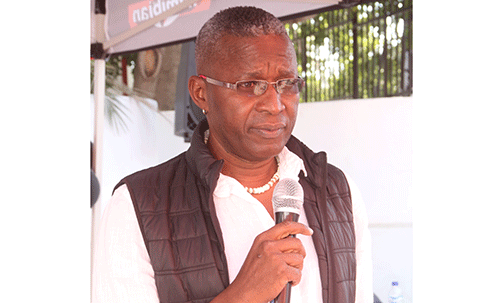Lahja Nashuuta
The Namibia Elections Media Monitoring Report has recorded an improvement in the media’s elections’ coverage.
Media ombudsman John Nakuta recently hailed the media for keeping voters informed about election issues for improved decision-making.
However, he expressed concern that most political parties’ media engagement and campaign events had declined.
“One of the primary reasons for conducting impartial and comprehensive media analysis in the context of elections is to identify and mitigate biases that may influence public perceptions and electoral outcomes,” he stated.
Presenting the findings, Christie Keulder, lead consultant of the project at the Office of the Ombudsman, noted an improvement in terms of story tone.
He stated that there have been more positive to neutral stories in the media, compared to the previous assessment.
Keulder pointed out that except for Swapo and the Popular Democratic Movement (PDM), most of the campaigns are stuck in the mud, and lack innovative approaches.
Hence, there is no consistency in terms of media coverage.
“There is a need for consistency in hosting events. That is why it’s important for political parties to have an internal campaign media strategy to ensure sufficient and effective media coverage of the party events and their presidential campaigns. There is a need for political parties to be proactive in engaging the media to ensure consistent coverage,” he advised.
No money
New Era reached out to Rally for Democracy and Progress (RDP) president Mike Kavekotora to find out why the party is not hosting campaigning rallies.
The economist-turned-politician said: “We have two major challenges as a party. One is the financial challenge. Being a small party by design, we don’t have finances. Our financial situation is such that we cannot launch a campaign similar to the one that could be launched by a party like Swapo or PDM, which has 16 seats in Parliament”.
Instead, the party would concentrate on door-to-door campaigns, and use the social media platform to reach out to the electorate.
Gaps
Recently, various experts have poked holes in campaigns, criticising political parties for not having clear strategies.
One of them was Wanja Njuguna, a senior journalism lecturer.
She urged political parties to have a “clear agenda and a campaign strategy that outlines who you are, what you bring to the table, your target audience, and how your message will reach out to the target audience”.
-lnashuuta@gmail.com


